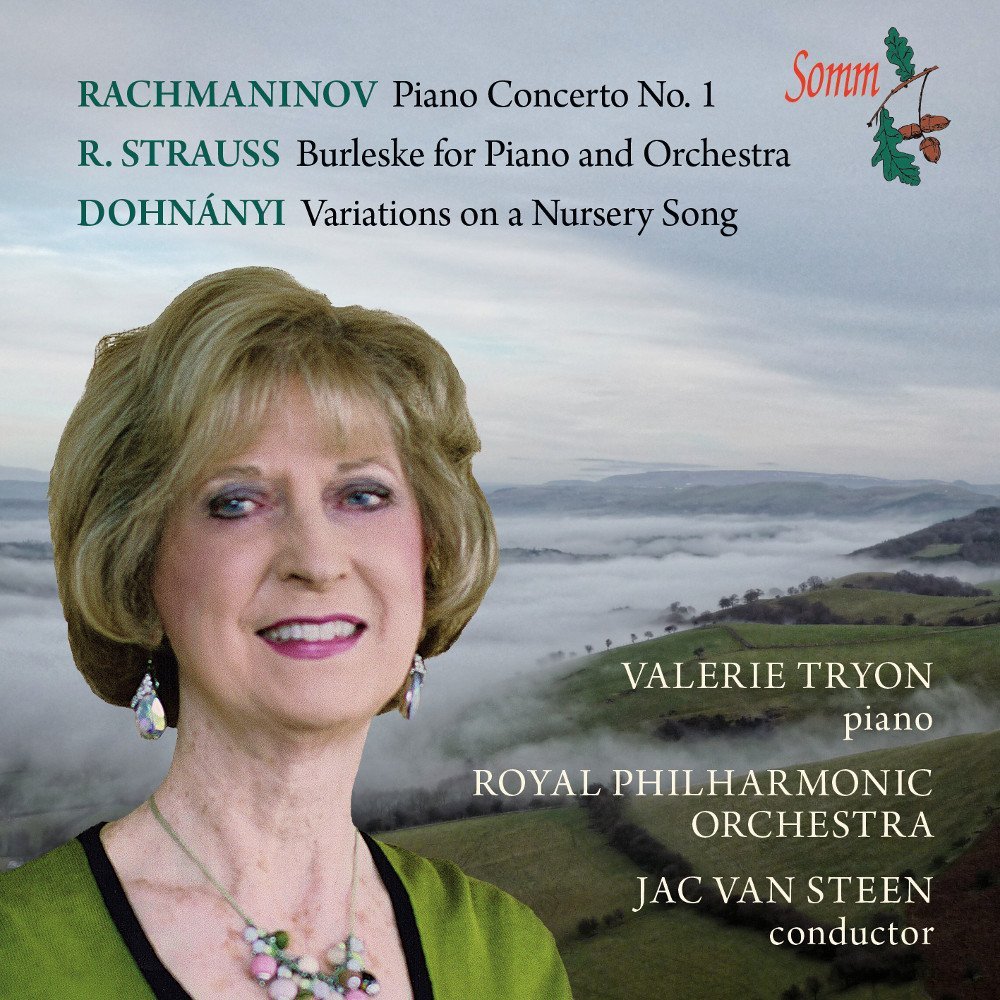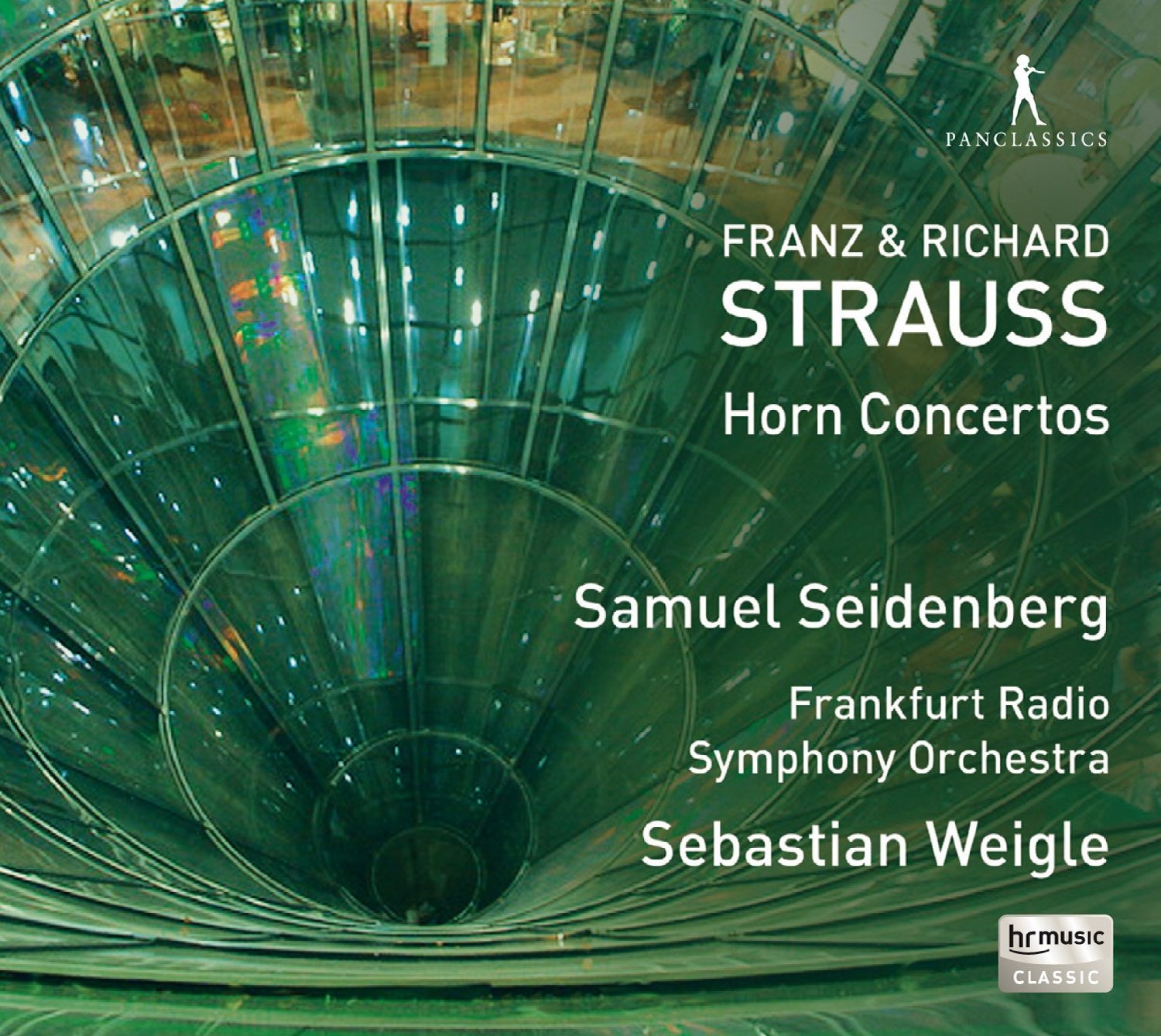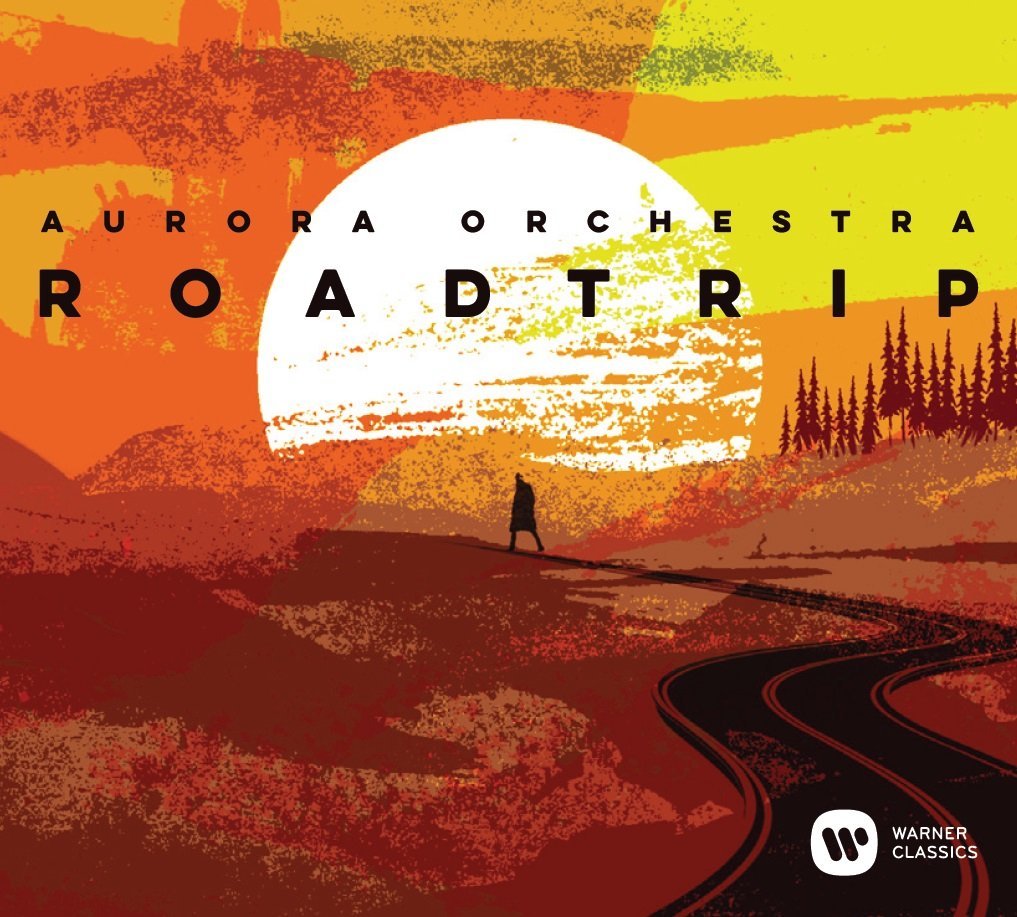
This entertaining, well-filled disc collects three works which, if they were programmed more frequently, should fill concert halls. The pick of them is Dohnányi's inventive, unpretentious Variations on a Nursery Song – a piece which throws up fresh surprises with each listen. The best joke comes near the beginning, as a brooding, doom-filled opening slyly introduces the theme, Ah, vous dirai-je, Maman. Fourteen variations follow, along with multiple references to composers who would have been familiar to audiences at the work's 1914 premiere. Wagner, Brahms, Strauss, Tchaikovsky and Dukas are among those teased, and the close is wonderful. Brilliantly enjoyable as the work is, there's a niggling lack of light and shade. Not the case with Rachmaninov's music, though his underrated Piano Concerto no 1 contains some delectable soul-searching. Mostly though, the music fizzes with youthful joie de vivre, the occasionally terse phrases and frequent metre changes sounding much more like late Rachmaninov than the lush middle years. It unashamedly borrows from Grieg and Schumann, and its relative lack of popularity bothered the composer, who complained, when he announced a performance of this concerto in its revised version, that “they do not protest, but I can see by their faces that they would prefer the Second or Third."
Strauss's early Burleske for Piano and Orchestra is another neglected treat; a baggy, endearing single movement which looks back to Liszt as much as it anticipates mature Strauss. There are plenty of memorable ideas, notably a nifty timpani solo at the outset. Valerie Tryon's performance is as convincing as any you'll hear, and in all three works she receives excellent, alert backing from Jac van Steen's Royal Philharmonic. It's always a pleasure to come across great performances from artists who deserve to be better known. Tryon, UK born but long resident in Canada, made this disc when she was 78. She's on superb form, her playing in these three youthful works full of sparky wit.
This disc isn't just for horn players. Coupling the two concertos by Richard Strauss with one by his father Franz shows just why the son developed such a fascination with the instrument. The horn-playing Franz was a famously prickly character: Hans von Bulow and Wagner both detested him as a person but admitted that his technique and musicianship were beyond reproach. He was a musical conservative who detested Wagner's operas, despite playing in the first performances of several of them. His Op. 8 Concerto is a fun piece – three compact, linked movements lasting little more than 12 minutes. And it's in C minor – most big horn pieces are in major keys, giving Franz's slightly foursquare themes a darker colour. The frequent rapid runs can at times make the concerto sound like an extended study, but there's enough soul to make the piece work. Good to hear it performed with such warmth and affection by the Frankfurt RSO's youthful principal Samuel Seidenberg.
Richard Strauss's Horn Concerto no 1 was written when he was just 18, as a 60th birthday gift for Franz, though he reportedly didn't approve of the work's modernism and never performed it in public. How anyone couldn't like this music is beyond me; it's among the best of Strauss's early pieces and even includes the germ of a theme which was fruitfully developed in Don Juan. Seidenberg's lightness of touch is a delight, and he doesn't take the 6/8 finale too fast. Strauss's later horn concerto was completed in 1942, a bittersweet, nostalgic indulgence and a neat summation of his late style. The orchestral writing is defter and more transparent, the solo line more lyrical and vocal. There's some brilliant interplay with the orchestral horns, and another 6/8 finale pays homage both to the earlier concerto and to Mozart. This is a lovely disc, and one of the best modern recordings of these pieces – Dennis Brain's disc suffers from boxy sound, and Barry Tuckwell is a touch effortful. There's affectionate orchestral accompaniment under Sebastian Weigle and good notes.
The Aurora Orchestra's new album begins with a flurry of mandolin and a speaker reading the extravagant first sentence from a Melville short story. It closes with the phrase “being too full of hypoes to sleep, I sallied out to walk”. The first port of call is John Adams's impressive, hyperactive Chamber Symphony, a work full of hypoes if ever there was one. Inspired both by Schoenberg's Op 9 and cartoon soundtracks, the music's virtuosity and agility are never in doubt, though the first movement's dizzying energy is easier to admire than love. What follows is more engaging: Matthew Gee's louche trombone singing mournfully over an incessant walking bass. "Roadrunner", the symphony's finale, does recapture the joy of Adams's earlier music, and there's a neat Schoenberg quote in the final seconds. Conductor Nicholas Collon does a sterling job of clarifying Adams's busy textures, and he's also good in The Housatonic at Stockbridge, the last movement from Ives's Three Places in New England. The hymn tune slowly emerges behind muted, whirring high strings, and the cacophonous blast near the equivocal close retains its power to shock.
There's a bright-eyed account of Copland's Appalachian Spring, in its original chamber version. The dryish Kings Place acoustic highlights details which are often missed, and there's some delectable wind playing. It's a shame that the terrific interlude heard in the full ballet before "Simple Gifts" is missing. The score's abstract working title was Ballet for Martha; that listeners claimed that the music directly described the Appalachian mountains always amused Copland. Heard between the three main works are three songs arranged by Nico Muhly and two interludes provided by multi-talented string player Max Baillie. Muhly's versions of the ballads "Reynardine" and "The Brown Girl", sung by Sam Amidon and Dawn Landes respectively, capture the originals' strangeness, and the disc closes unexpectedly with a luminous transcription of Paul Simon's "Hearts and Bones". All excellent, with nice sleeve art too.














Add comment